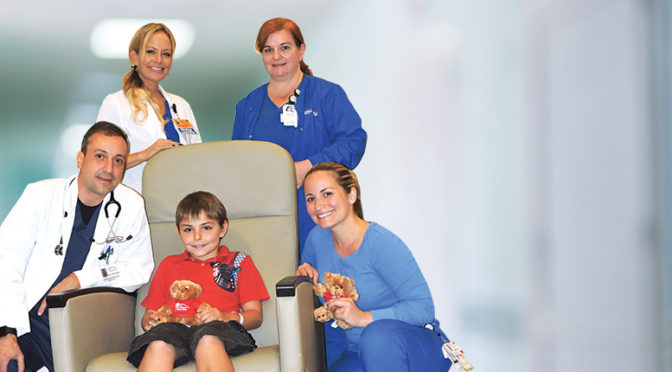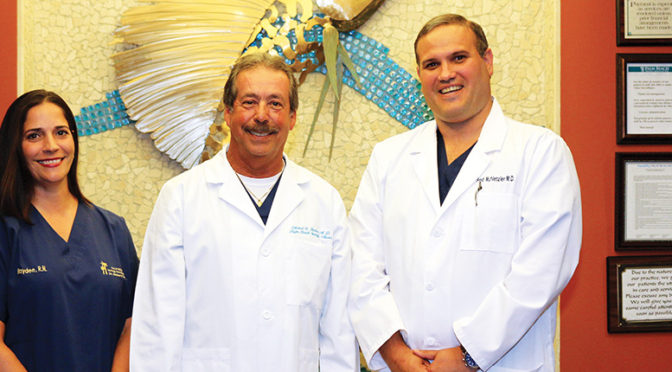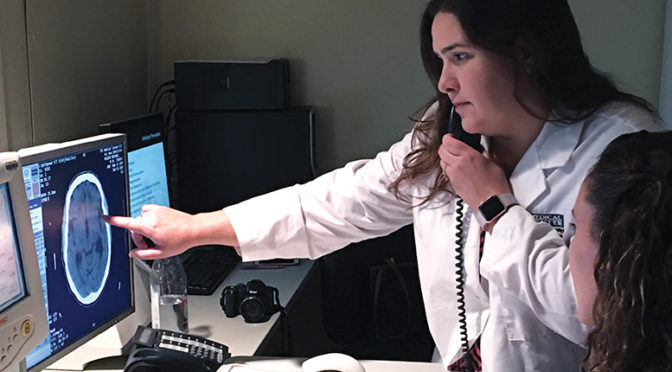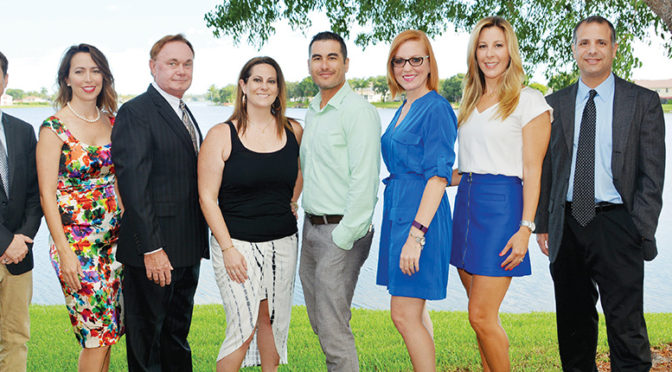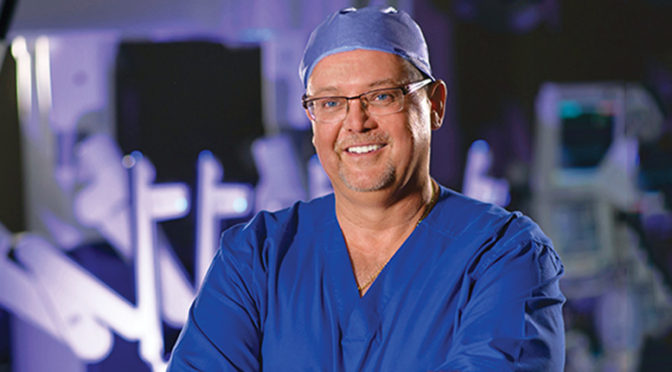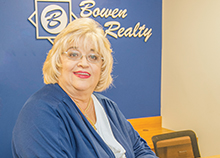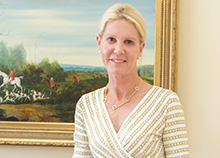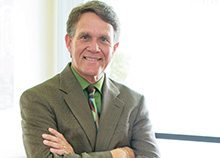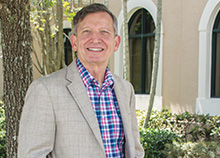Wellington The Magazine-July 2016
Children’s Hospital At Palms West Offers Exceptional Pediatric Services Close By
Palms West Hospital knows that medical treatment affects children differently. They are not just small adults.
Families in the western communities can take comfort in knowing that exceptional pediatric healthcare is located right in their own backyard. The Children’s Hospital at Palms West — the only dedicated pediatric hospital in the western communities — offers a full complement of healthcare services and is a hub of specialized pediatric services for a five-county area.
The Children’s Hospital at Palms West is essentially a hospital within a hospital. All hospital services offered for adults are also available for children. Palms West Hospital knows that medical treatment affects children differently than adults. Even if they suffer from the same illness or injury, children are not just small adults.
Growing children have different bodies than grownups. A routine procedure for an adult may have serious implications for a developing child. Not only do children require specialized pediatric care from practiced professionals who identify a young patient’s immediate medical needs, but also recognize the long-term effects of procedures and treatments on a child. In addition, caring for a child requires that “special touch” — to be able to communicate with the child at his or her level and inform the parent or family member regarding the child’s condition.
Palms West Hospital has specialized pediatric services in the emergency room, inpatient care, the intensive care unit, hematology/oncology, imaging and rehabilitation. The medical staff includes 128 pediatric specialists covering 22 sub-specialties, such as pediatric cardiology, pediatric endocrinology, pediatric neurosurgery and pediatric oncology. With this breadth and depth of specialists on staff, area families do not have to travel outside of the community for treatment. In fact, patients come from as far away as Coral Springs and Okeechobee to receive pediatric care at Palms West Hospital.
Palms West Hospital’s pediatric emergency room treats nearly 19,000 children annually, which accounts for 35 to 40 percent of the total ER volume per year. When a trip to the ER is needed, hospital staff members know how important it is to make children feel comfortable and put their fears to rest. That is why they offer a dedicated pediatric emergency room, where sick and injured kids receive emergency medical treatment in a separate, child-focused environment. This includes a bright, colorful area with murals, a movie theater, toys and games, staffed by board-certified physicians specializing in pediatric emergency care.
Pediatric services also include a child life specialist who helps children and families cope with the hospital environment, focusing on what a child needs emotionally in order to be treated medically. This often takes the form of diversionary activities, such as games, toys, books or even a new teddy bear.
The pediatric in-patient department features 22 all-private beds and 10 pediatric intensive care unit (PICU) beds. Patients in this area are cared for by pediatric intensivists, specialized in the care of critically ill young patients.
Palms West Hospital has a service-oriented philosophy that puts the needs of children and their families first. The Children’s Hospital at Palms West reflects a theme that is child-friendly, bright and cheerful, which keeps spirits up and tensions down. A very important part is the environment created for the children. Each pediatric room reflects an outer space theme, named for a planet, star or constellation, and is furnished with kid-friendly décor. Even in the hospital, a child’s room should be a safe haven. That’s why Palms West has separate treatment rooms where children can be transferred for any specialized treatment their condition may require. Afterward, they can return to the cozy familiarity of their own private rooms.
The Children’s Hospital at Palms West includes an interdisciplinary team comprised of dedicated pediatric professionals, such as physicians, nurses, respiratory therapists, pharmacists, social workers and clinical dietitians. All members of the healthcare team have been specially trained to care for children of all ages — from toddlers to adolescents.
A large focus in the pediatric unit is the playroom, where children can feel safe and comfortable while taking a needed break from their treatment schedule, as well as a teen room with computers and internet access. Just as in the ER, a full-time child life specialist provides therapeutic play and developmentally appropriate activities for patients, reduces the stress of hospitalization, and provides support to patients and their families.
The child life specialist also partners with outside charitable organizations that wish to provide cheer to the pediatric patients. These organizations provide junk food runs, Nerf fights and pizza parties, which allow kids to be kids while they are hospitalized. At holiday times, the calendar is filled with visits from generous local groups.
The Children’s Hospital at Palms West also has a dedicated unit for pediatric hematology/oncology patients. This program, started in 2006, is led by Medical Director Dr. Melissa Singer, the area’s only pediatric hematologist/oncologist. Since its inception, the program has grown tremendously. Many hematology/oncology patients are also treated on an outpatient basis, in a dedicated infusion area. Caring for children with cancer and blood diseases is complex and requires emotional sensitivity, something that the caregivers at Palms West truly understand.
In 2004, Palms West Hospital developed the first pediatric residency program in the area, the only one north of Miami and south of Orlando. To this day, it is the only pediatric training program in the area. Many of the program graduates continue working in the local community.
Throughout the year, Palms West offers a number of family friendly community events focused on topics like summer safety, healthy habits or just good holiday fun. There are also teddy bear clinics, which allow children the opportunity to become familiar with a hospital environment, while they are healthy, so it is not such a scary environment should they require a trip to the ER.
The Children’s Hospital at Palms West’s reputation as a warm, inviting environment continues to draw physicians and families alike. This has helped with the program’s continued expansion and has led to its reputation of an exceptional healthcare hub for the specialized care of children.
To learn more about the Children’s Hospital at Palms West, call (561) 345-7009 or visit www.palmswesthospital.com.
